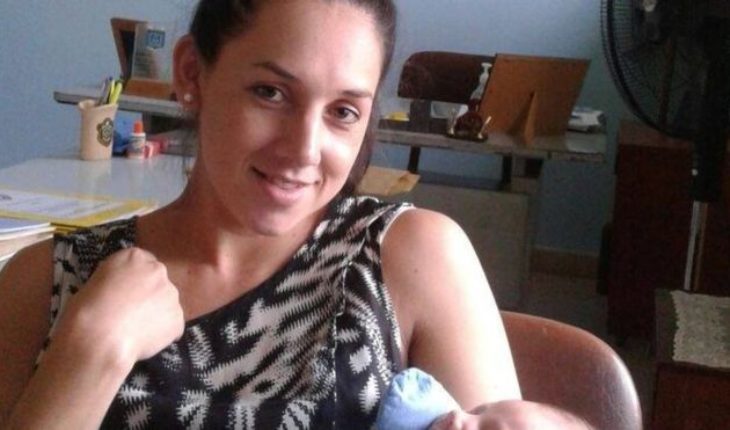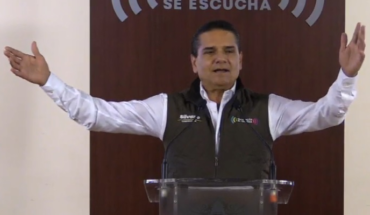Almost three years ago, the Lieutenant of the frigate, 33 years, asked nursing license after serving six months of maternity leave, but they refused it and, after making a complaint, they punished her with a house arrest of 45 days to fu (e) confirmed this week by the Supreme Court of Justice.
Quinteros took the case to the courts, where he has received several setbacks, but also some victories.
The biggest of all is that “has opened the doors to rights thousands of women and children be respected”, in the words of the Prosecutor for the childhood Monaliza Muñoz.
Thanks to this case, which has had a great impact in Paraguay and has generated several protests, “was possible to regulate the obligation of lactation, the constant monitoring of companies, employment stability post-partum mandatory and” regulations on facilities for breastfeeding,”says the Attorney.
After this case, in the armed forces, were installed breastfeeding rooms and maternity and paternity rights systematized.
“It’s a heroine; It brought us untold benefits, but she was the only one that was not benefited,”says Muñoz to BBC world.
Bad country to be mother between 1954 and 1989, Paraguay lived the longest military regime in the history of Latin America. Eradicate the legacy of the general Alfredo Stroessner has not been an easy task.
According to Save the children, an NGO based in London that fights for the rights of the child, Paraguay is among the three countries dealing with worst mothers in Latin America, together with Honduras and Guatemala.
The country has one of the lowest rates of compliance with the Act of breastfeeding, which was just adopted by 2015.
Only since 2002 Paraguay accepts women in the army.
And Quinteros is a member of the first class that graduated from the Military Academy in 2006.
The military law different spokespersons of the Paraguayan armed forces have said that his case “has nothing to do with the right to breastfeeding”, but with an act of slander and failure against military discipline.
After the months of maternity leave, Quinteros asked to removed it the night guard since he had to be near their son baby during the night.
When his request was denied, the Lieutenant presented a note to the ordinary courts and the case was made public.
That was interpreted by their commanders as a disrespect which exceeded the chain of command. And exceptions of guard, they said, were not permitted under military law.
In that sense, several officials of the Government of Mario Abdo Benítez, as well as the President himself, have said that they cannot do anything since the case is within the jurisdiction of the military.
“We ask that the right to breastfeeding be fulfilled even though it is military,” he said to BBC World Celeste Molinas, spokeswoman for the Ministry of women.
“But we are the Executive power and can not interfere in the judiciary or the military power,” adds.
A political case Quinteros, Carlos Mendoza, lawyer stressed that his client did not commit a crime or an offence.
“It is a disciplinary sanction that has not yet been fulfilled and we don’t yet know if it will have to comply with, because it’s been long time,” explains Mendoza to the BBC.
The Vice President of the nation, Hugo Velázquez, clarified on Wednesday that Quintero “is not arrested (…) and it continues fulfilling its functions.”
And he added that the Government will present a law seeking to “update the military framework in favour of breastfeeding”.
The case, however, already gained a political and international dimension: also on Wednesday, the United Nations Fund for children (Unicef) questioned the Paraguayan institutions.
María Cristina Perceval, its regional director, said that “If breastfeeding is a law that matter (…), well, what I am asking, humbly, is consistent with this social contract where nursing care and motherhood held.” Not punish it”.
Quinteros may not give interviews a member of the armed forces.
But Carlos Mendoza, his lawyer, says that the main problem is that the positivist law rather than natural law still prevail in Paraguay.
“Here the laws need to be written, there are no rights inherent to the human being,” he concludes.





